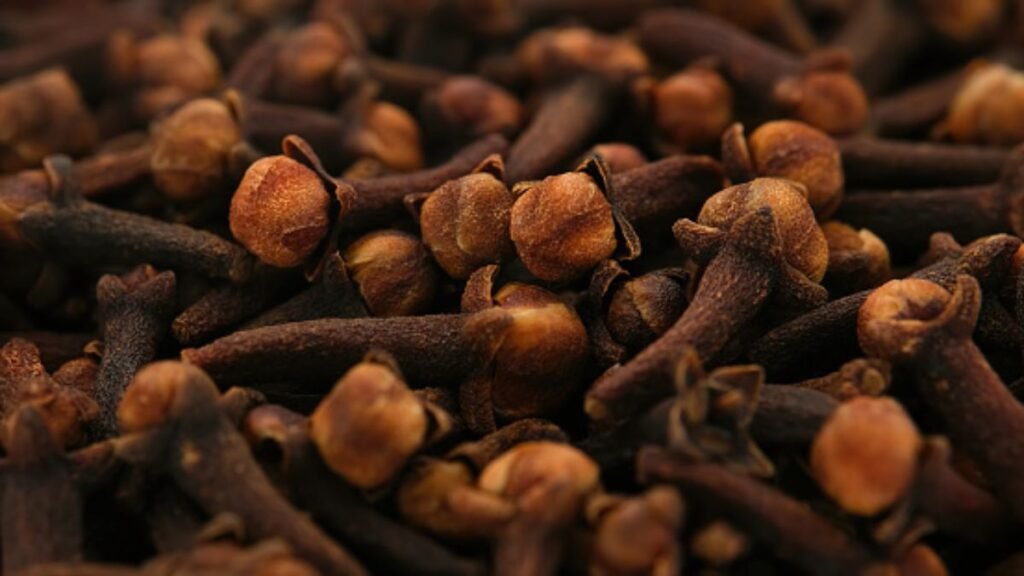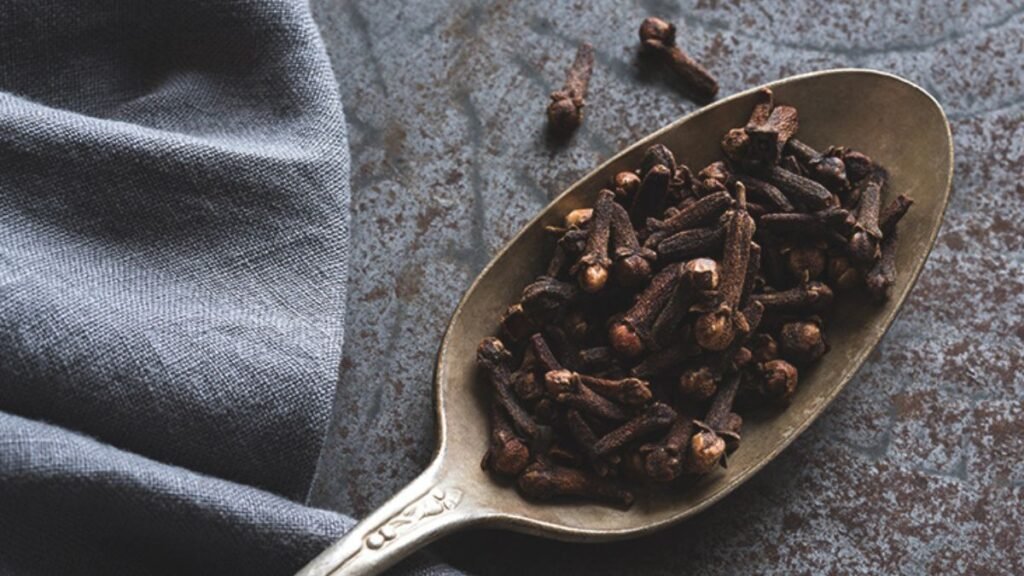All About Cloves | History | Health benefits | Uses | 10 Amazing Facts
Cloves are an aromatic spice that have been used in cooking and traditional medicine for centuries. Native to Indonesia, cloves have a distinct flavor and aroma that can be used to enhance a variety of dishes. Not only do cloves add flavor to food, but they also offer a variety of health benefits.

Name “Clove” Originates from the Latin word ”clavus” which means “nail”. Name refers to the nail- like shape of the flower buds that are used as spices. Clove, (Syzygium aromaticum), a tropical evergreen tree of the family Myrtaceae and its small reddish-brown flower buds are used as a spice. Cloves are said to be native to the Indonesian Moluccas, sometimes known as the Spice Islands, and were a significant component of the first spice trade. Cloves are a common spice used to flavor a variety of foods, especially meats and baked goods.
Spices known as cloves are produced from the flower buds of an evergreen tree known as the clove tree (Syzygium aromaticum). When still juvenile, clove buds are collected and dried. Whole cloves have a tiny, reddish-brown spike-like structure with a bulbous tip that is typically around 1 cm long. Cloves have a very potent, aromatic flavor and perfume and can be used whole or ground.
The buds contain 14 to 20 percent essential oil, the major component of which is the aromatic oil eugenol. Cloves are very pungent due to eugenol, which is extracted by distillation to extract clove oil. This oil is used to prepare microscopic slides for viewing and is also a local anesthetic for toothache. Eugenol is used in disinfectants, perfumes and mouthwashes, in the synthesis of vanillin, and as a sweetener or intensifier.

Origin:
Cloves are grown in India and Madagascar, but Indonesia is the country most closely associated with clove production. Indeed, the clove trade was so profitable in the Spice Islands (now part of Indonesia) that the British ceded the islands to the Dutch in 1667, following the Second Anglo-Dutch War, in exchange for a distant settlement known as New Amsterdam. As a result, the Dutch traded Manhattan for cloves.
As early as 200 BC, messengers from Java to the Han-dynasty court of China brought cloves that were placed in the mouth to scent the breath during audiences with the emperor. During the late Middle Ages, cloves were used in Europe to preserve, flavor and garnish food. Clove cultivation was almost entirely confined to Indonesia, and in the early 17th century the Dutch eradicated cloves on all islands except Amboina and Ternate to create a shortage and maintain high prices. In the latter half of the 18th century, the French smuggled cloves from the East Indies to Indian Ocean islands and the New World, breaking the Dutch monopoly.

Health Benefits of Cloves:
The health benefits of cloves include good digestion; protecting the liver; fighting against oral diseases; boosting the immune system; stimulating blood circulation; controlling diabetes; improving respiratory health; fighting inflammation; being good for headaches; relieving stress; and preserving bone quality and fighting against cancer.
- Treats toothache pain
Cloves have long been used in home remedies to treat toothache pain. The eugenol that provides the flavor of cloves is also a pain-reliever and can help relieve inflammation.
- Contain important nutrients
Cloves contain fiber, vitamins, and minerals, so using whole or ground cloves to add flavor to your food can provide some important nutrients.
- May improve liver health
Studies show that the beneficial compounds in cloves could help promote liver health. The compound eugenol may be especially beneficial for the liver. Cloves are also high in antioxidants, which may help prevent liver disease due to their ability to help decrease oxidative stress
- May help regulate blood sugar
Compounds found in cloves may help keep blood sugar under control. In combination with a balanced diet, cloves could help keep your blood sugar levels in check.
- May reduce stomach ulcers
Compounds found in cloves could help treat stomach ulcers.
Uses
Cloves are an incredibly versatile spice, having a wide variety of uses in both food and medicine. In the kitchen, cloves are often used to add a warm, sweet, and spicy flavor to dishes, particularly desserts. In traditional medicine, cloves have been used to treat conditions ranging from digestive issues to toothaches, and are known for their anti-inflammatory and antioxidant properties. Cloves are also used to make essential oils and perfume. This unique and powerful spice has been used for centuries and is an essential part of many cuisines around the world.
10 Amazing Facts on Cloves
- Cloves are the dried flower buds of the evergreen clove tree, which is native to Indonesia.
- Cloves are the dried flower buds of the evergreen clove tree, which is native to Indonesia.
- The clove tree can grow up to 20 feet high and has a life span of up to 50 years.
- Cloves have been used as a medicinal herb since ancient times, and were even mentioned in the Bible.
- Cloves are high in antioxidants, which may help to protect the body from damage caused by free radicals.
- Cloves are a good source of manganese and dietary fiber, both of which are important for digestive health.
- Cloves contain eugenol, an essential oil that has been found to be effective against bacteria, fungi and viruses.
- Cloves are a popular spice used in many cuisines, including Indian, Chinese and Middle Eastern dishes.
- Cloves are used to make clove oil, which has antiseptic and anesthetic properties.
- Cloves are traditionally used to season meat and fish dishes, as well as to flavor desserts such as apple pie and plum pudding.

